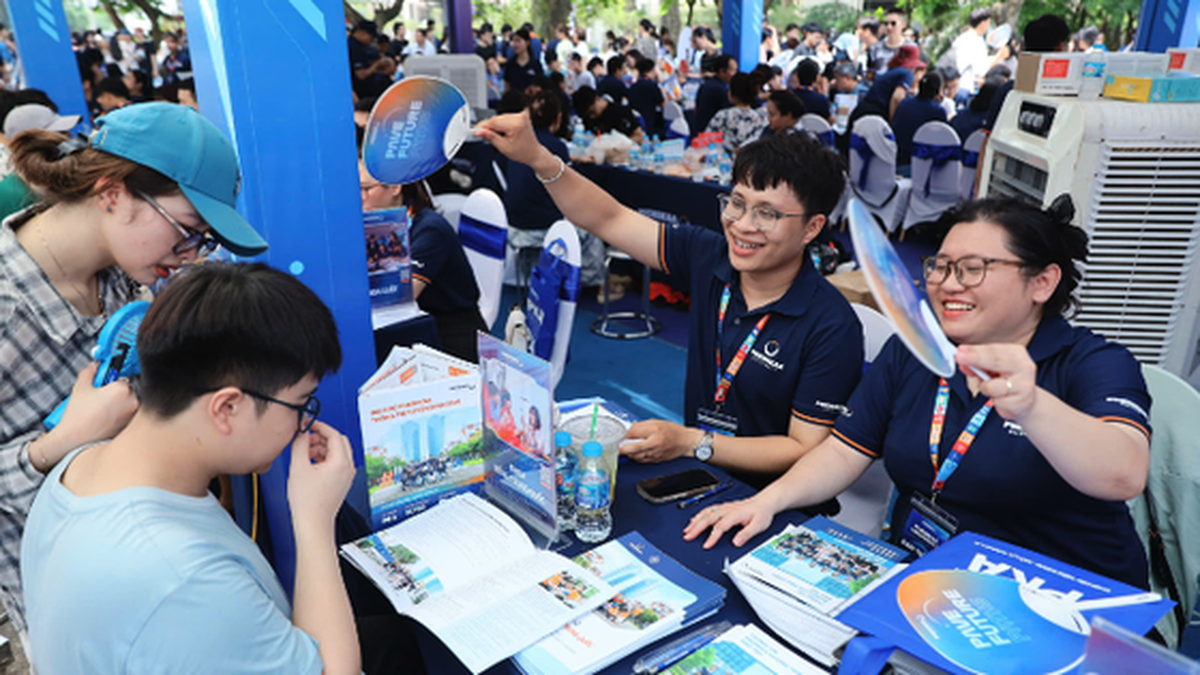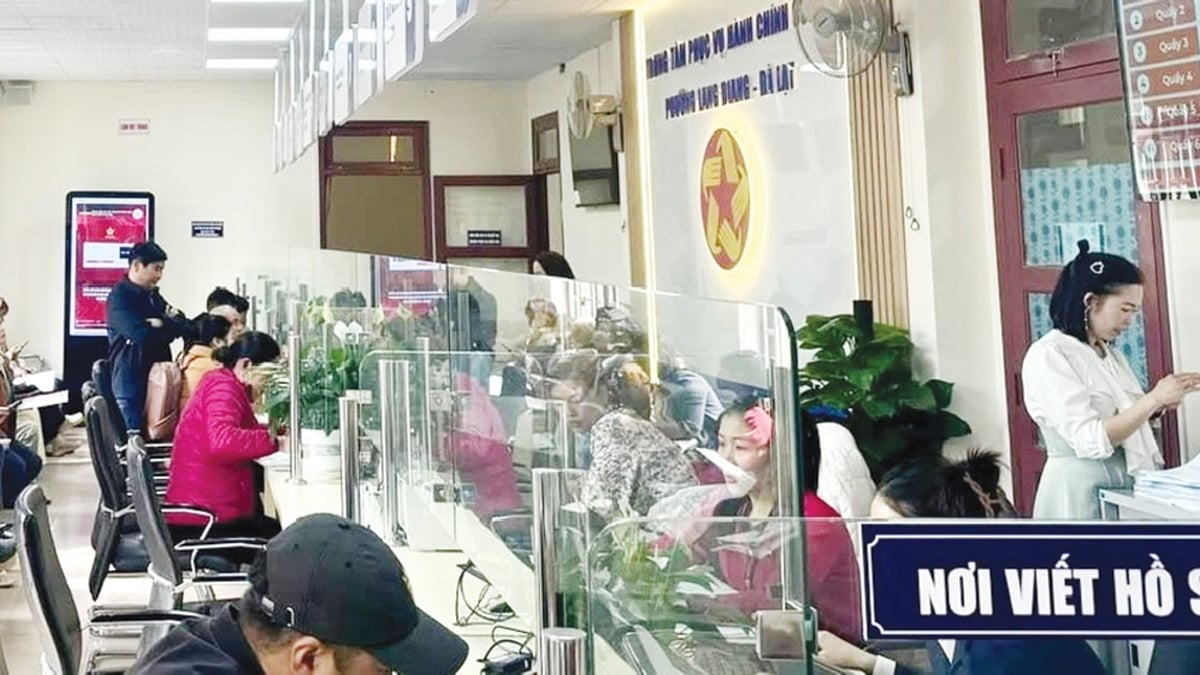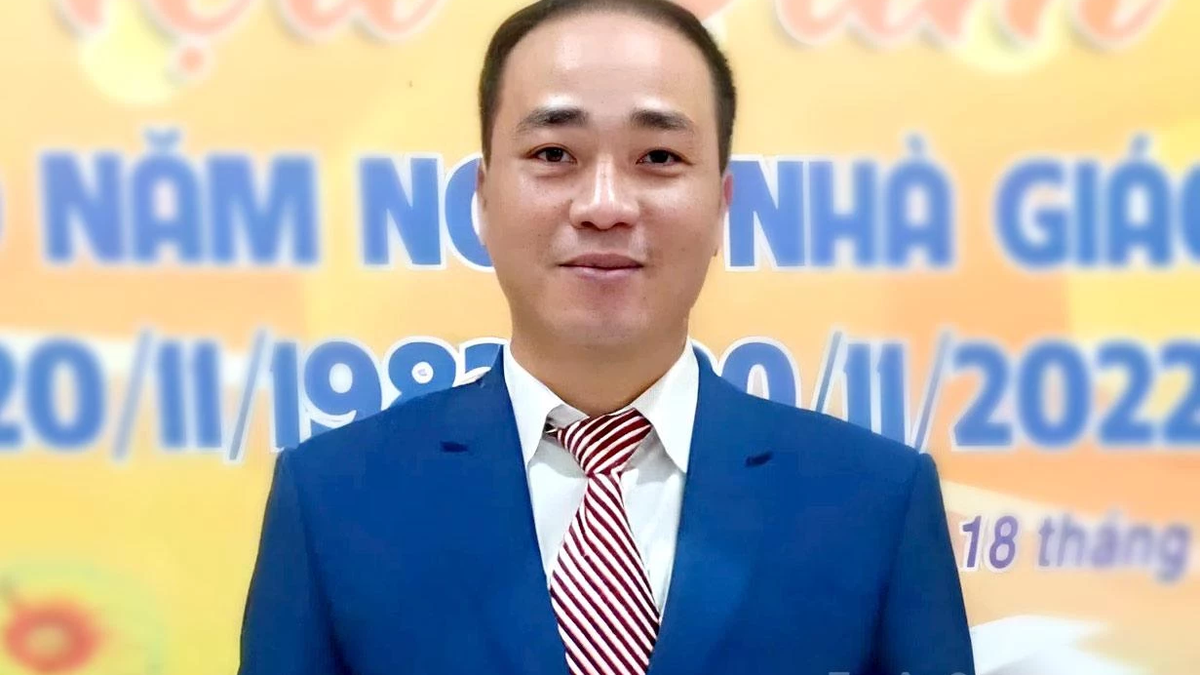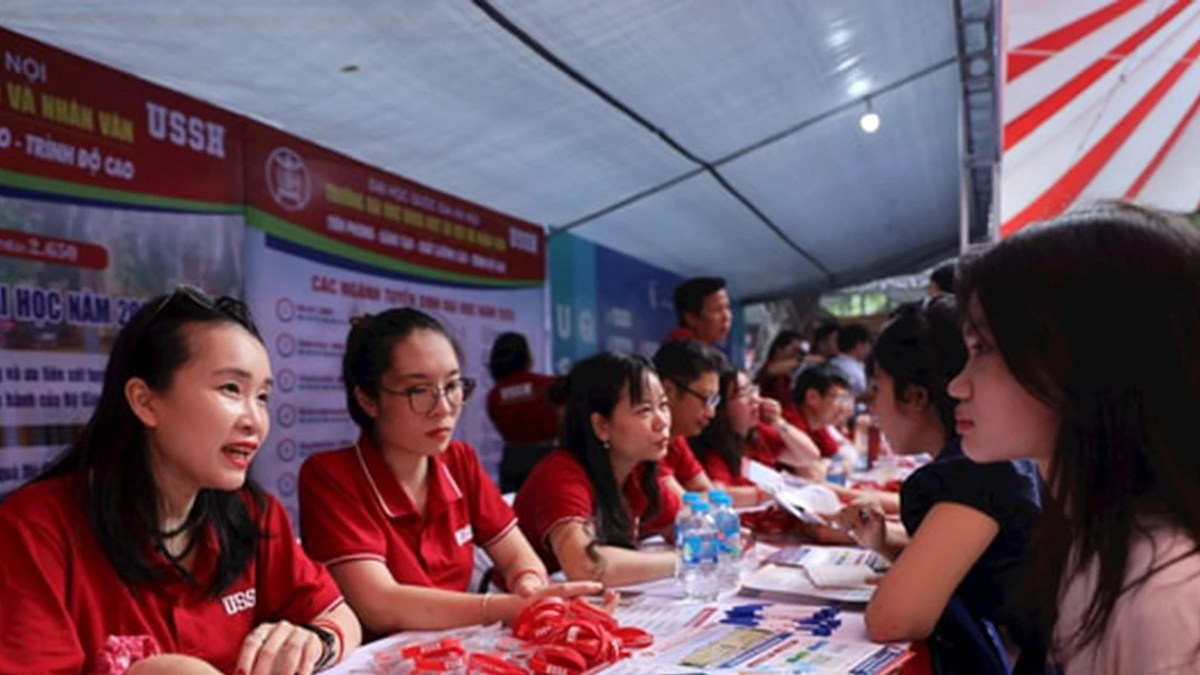 |
| The potential of ChatGPT ineducation is huge. (Source: SCMP) |
Timothy Lee Chi Chung, a teenager studying at a high school in Hong Kong (China), turned to ChatGPT - an artificial intelligence (AI) chatbot that is taking the world by storm - to help him with his schoolwork. In just 2 seconds, he had a list of 19 sample multiple choice questions for his upcoming English grammar test.
“I wrote down my answers and asked ChatGPT to tell me how many I got right,” said the 16-year-old, who will take the Diploma of Secondary Education (DSE) exams next year.
According to Timothy, ChatGPT is really helpful for his studies and helps his parents save a lot of money on buying additional workbooks for him.
Goodbye homework
Developed by San Francisco-based OpenAI and backed by Microsoft, when it was launched in November 2022, ChatGPT Q&A software attracted 100 million users worldwide within two months, making it the fastest-growing app in history.
ChatGPT is particularly appealing because of its ability to answer questions on any topic, write essays, compose poems, solve math problems, solve computer coding problems, and even give quick advice on personal problems.
Tech billionaire and Twitter owner Elon Musk welcomed the launch of ChatGPT with a tweet: “It’s a new world. Goodbye homework!”
Clearly, applications using artificial intelligence (AI) are having a significant impact on the education sector at all levels as they can provide students with electronic assistants to help with homework, write school essays, or complete research papers, even university theses in the blink of an eye.
GPT stands for “Generative Pre-Trained Transformer”, this technology application is programmed to collect information mainly from the internet and various information sources. However, it is currently limited to documents available as of 2021.
In Hong Kong, university students, teachers and professors have welcomed ChatGPT with a mixture of enthusiasm, admiration, skepticism and anxiety.
Education experts are weighing the benefits of ChatGPT as a new educational tool against the app's drawbacks, particularly concerns about the potential for cheating and plagiarism.
Ms. Michelle Chan Yuk Fan, a secondary school English teacher, said her biggest concern is that students will overuse ChatGPT in class. “Reading and writing are two important skills in learning English. I worry that my students will use AI tools to submit homework and neglect their studies,” Ms. Chan said, adding that with the growing popularity of ChatGPT, she will try to assign students writing assignments to complete in class.
“This way, I can make sure their writing is based on their knowledge and creativity and can intervene if they are struggling,” she said.
Instead of fearing, adapt.
Hong Kong’s higher education institutions, the University of Hong Kong (HKU) and Hong Kong Baptist University (HKBU), said their schools would consider it plagiarism if students used AI tools and presented essays that looked like original work. The Chinese University of Hong Kong (CUHK) also said it would allow students to use AI tools “with permission” for their studies, but students would be expelled if found to be using them improperly.
Banning ChatGPT in the classroom would be futile, said Professor Wang Yang, vice president for institutional development. “We should explore ways to incorporate these technologies into teaching and learning by providing personalized and interactive learning content. If you can’t beat them, join them. These tools have the potential to significantly enhance the educational experience.”
He argues that users should find ways to adapt to change by harnessing the potential of new AI tools while overcoming their limitations.
 |
| In the future, ChatGPT may be allowed to be used as a new support tool in exams. (Source: HKEAA) |
According to Professor Guo Yike of HKUST, in an educational environment, the effectiveness of ChatGPT depends on whether students know how to ask questions or give instructions to give the best answers, not simply on using AI to help with homework.
“We are fully aware of issues such as plagiarism and cheating. The real challenge is not to find a way to ban students from using AI or to ban them from accessing technology, but to change education and stimulate their critical thinking,” said Professor Guo Yike.
Mr Yike believes that tools like ChatGPT could even change the way exams are conducted in the future, with students being tested on the questions they ask rather than the answers they give. “I would ask students to give me the best questions instead of machine answers,” he suggests.
It is important for educators to be open-minded about future applications of the technology, as an AI tool like ChatGPT could be useful in content production, said Ryan Whalen, Associate Professor of Law at HKU.
“GPT chat can help students with writing, especially finding interesting passages, but we need to make sure that students are trained to think critically when using this tool, not just rely on it. We need to train students to make persuasive arguments, to be creative scientists, lawyers, or humanists. But in the future, that creativity will be tied to AI,” Whalen recommended.
Professor Eric Friginal, Head of the Department of English and Communication, Hong Kong Polytechnic University, shared that recently a Dutch company specializing in scientific, technical and medical content, issued guidelines for authors on the role of ChatGPT or AI-based tools.
Such tools can be used to improve the readability and language of research papers, but do not replace the core tasks authors should perform, such as interpreting data or drawing scientific conclusions. These tasks can only be performed by humans, a company spokesperson said.
"In the future, when authors use AI tools like ChatGPT to reference and complete their works, these technologies will not be listed or cited as authors - the people who are ultimately responsible and accountable for the content of their work," said Mr. Friginal.
Given the rapid increase in the number of ChatGPT users, the Hong Kong government has yet to issue a warning about the impact of ChatGPT in education, but is also planning to set up a separate department to study whether this new technology should be regulated through law.
Afraid of artificial intelligence (AI) technology? The first lesson from history is that even the most powerful new technology takes time to change the ... |
Education needs to transform before the 'storm' ChatGPT Education expert Nguyen Thuy Uyen Phuong - founder of Tomato Children's Home School and brought the "constructive school" model to Vietnam... |
Can ChatGPT maintain its rapid growth momentum in the face of a slew of new competitors and... |
ChatGPT is perfect for assistant editor Sharing about the ChatGPT application in the operation of a newspaper office, Deputy Editor-in-Chief of Vietnamplus Nguyen Hoang Nhat said that the ... |
ChatGPT Could Be Cybercriminals' New Weapon Global security experts at software company VMWare in Australia warn that cybercriminals can use ... |
Source








































































































Comment (0)